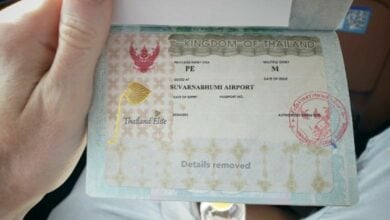How long can your retirement funds last in Thailand

The process of retirement planning can often seem as challenging as traversing a labyrinth, particularly when contemplating relocation to Thailand. It is fundamental to garner an understanding of how your retirement fund will be managed in this idyllic island nation. In Thailand, retirement fund management is a methodical procedure involving multiple primary stakeholders, encompassing employers and employees, extending to authorized fund managers.
This capital is managed by a designated committee that outlines the investment strategies. These funds are handled by various entities, including commercial banks and life insurance companies. Employees must contribute a portion of their earnings to these funds, which is then matched by their employers.
However, it becomes key to question the sustainability of these resources in Thailand. Feel welcome to traverse further through the distinct aspects of the Thai retirement fund framework and uncover the ways to harness optimal benefits during the sunset years in this radiant territory.
Cost of living in Thailand
In this section, we’ll break down the major components of daily life in Thailand and provide an insight into the expenditure you might face, assuming that you’ll be relying on your retirement funds for sustenance.
Accommodation and utilities
In just about any location in Thailand, housing options for retirees are plentiful, ranging from city condos to rural houses. A one-bedroom apartment in a city centre typically costs around USD 600 per month whereas a similar place in the outskirts can be obtained for nearly half of that, roughly USD 300. In terms of utilities, including electricity, heating, cooling and water, you would be spending approximately USD 70 for an 85m² apartment.
Food and dining
Whether you prefer in-home-cooked meals or dining out, the food costs are relatively low in Thailand. Fresh produce, basic ingredients and groceries for a month can be under USD 200. Dining out at a local Thai restaurant can cost a mere USD 2 per meal, while more fancy options might go up to USD 20. This makes the Thai food scene versatile and friendly to your retirement funds.
Healthcare and insurance

Healthcare costs in Thailand are lower compared to many other countries, but it’s still substantial. For private sector medical services, expect to spend around USD 1000 annually. A comprehensive local health insurance policy can cost about USD 2000 per year, including coverage for treatments, medicines, outpatient visits and hospitalisation.
Transportation and leisure
Regarding transportation, you can own a motorbike or employ the reliable public transit systems. Either way, the expenses won’t exceed USD 60 a month. For leisure activities, remember that Thailand is rich in natural parks, temples, and beachfronts. You can pursue outdoor activities or take cultural tours for a minimal day’s expense of USD 10 to 30.
While living in Thailand, retirees will find that they can live comfortably with a respectable lifestyle. Each financial decision you make can help stretch your retirement funds further. However, it’s important to ensure that the sums add up to guarantee a smooth transition to life in Thailand.
Understanding retirement funds
Investing in your future is crucial. Retirement funds offer a secure method to support your lifestyle after years of dedicated work. In Thailand, this system has a unique structure that offers various benefits.
Types of retirement funds available
Thailand has a range of retirement funds set up to cater to different individuals and their employment situations. Among these are provident fund providers, which include commercial banks, finance companies, securities companies, mutual fund management companies, and life insurance companies. Before investing, though, they must obtain a license from Thailand’s Ministry of Finance. This ensures the operation’s legality and a certain level of reliability for potential investors.
Another option is the National Pension Fund (NPF). This plan is currently in development and it’s supposed to become a mandatory retirement savings scheme for all workers in the formal sector. Therefore, if you’re employed in Thailand, you’ll likely be part of this program soon.
Performance of retirement funds
Before deciding on a retirement fund, it’s important to check its track record. Retirees who invested in Thailand’s Provident funds, for instance, have yielded decent returns. As for the Super Saving Funds, they offer generous tax benefits. However, you should remember that past performance doesn’t guarantee future success.
Importantly, keep in mind that regulations around these funds dictate that employees may contribute between 2% and 15% of their salaries. Employers match this contribution, and any amounts above 15% need approval from the Ministry of Finance.
Investing in retirement funds in Thailand offers a solid strategy for your future financial security. However, be sure to do thorough research before deciding on a particular fund. It’s your retirement, after all. Ensure it’s a comfortable and enjoyable one.
How to extend your retirement funds

Effective budgeting strategies
Extend your retirement funds in Thailand by adopting efficient budgeting approaches. Monitoring your income and expenses can lead to significant savings. Start by breaking down your expenses, including housing, utilities, healthcare, food, and recreation among others. Document every dime and adjust your lifestyle to maintain a balance between your income and expenditure.
Rather than spending unnecessarily, consider investing in experiences. Thailand offers an affordable cost of living, with plenty of cost-effective activities to do. For instance, you can explore historical sites, sample local cuisine, or immerse yourself in the rich culture, without breaking the bank.
Investment options for ex-pats
Expats have access to a range of investment options to extend their retirement funds in Thailand. Provident funds can serve as valuable investment tools. Decisions regarding these funds are made by a fund committee comprised of employer and employee representatives. Employers even match employee contributions, which can range from 2 to 15% of the salary.
Furthermore, Thailand is planning to implement the National Pension Fund (NPF), a mandatory retirement savings scheme for all formal sector workers. Employees and employers contribute equally towards the NPF, making it an attractive investment option.
You can choose to invest in securities companies, finance companies, and even life insurance companies, among other licensed fund providers. Ensure that your potential investment aligns with your financial goals and risk tolerance.
Timely and strategic investments can significantly boost your retirement funds. By exploring the available options and sticking to your budgeting plan, you can enjoy a comfortable retirement life in Thailand.
Legal and financial considerations
To understand the true longevity of your retirement funds in Thailand, let’s delve into some legal and financial prerequisites. Understanding these can offer you a sustainable retirement life in Thailand.
Retirement visa requirements

Considering Thailand as your retirement destination requires you to comply with certain visa requirements. Notably, securing a retirement visa is a valuable advantage. The process becomes seamless once you are 50 or older, armed with a Thai bank account maintaining at least THB 800,000 (approx $24,000) or a monthly income of THB 65,000 ($2,000). Combining these two options to achieve the minimum requirement also works.
For a successful application, a valid passport with a minimum one-year validity and a clear criminal background check are mandatory. Connect with your local Thai Embassy or explore the Thai immigration portal for pertinent information tailored to your country of residence. Bear in mind, that being equipped with a retirement visa could involve additional requirements like re-entry permits if your plan includes travelling in and out of the country throughout your initial year of residence.
Taxation for ex-pats
Managing your taxes prudently is an essential aspect of making your retirement funds last in Thailand. If you decide to withdraw funds from your provident fund before reaching the age of 55, an interesting calculation comes into play. Your taxable amount equals the total of your employer’s contribution, returns from your contribution, and returns from the employer’s contribution. Subtract THB 7,000 times the number of employment years, and halve the result.
These legal and financial considerations help underpin a smooth, trouble-free, and sustainable retired life in Thailand. The path seems to promise a respectable way to stretch your retirement funds to their maximum limit.
Retiree community and support networks
Making your retirement funds in Thailand last involves more than just astute financial management. It involves integrating into the local community and understanding the services and support networks available to you. Here we delve into some aspects of social integration and access to healthcare that can enhance your retirement experience in Thailand.
Expat groups and social integration
In Thailand, expat groups provide a vibrant social circle and support structure for retirees. These consist of people from diverse cultures who’ve chosen Thailand as their place of retirement. They organize social events, and health awareness programs, and provide a platform for sharing important information pertinent to expats, including legal updates and investment opportunities. Getting involved in these expat groups can provide you not only with a sense of community but also valuable insights that can help stretch your retirement funds in Thailand.
Access to healthcare and services
The healthcare system in Thailand is recognized for its affordability and accessibility. However, it is critical to realize that possessing an all-encompassing health insurance scheme is a key determinant in availing these services, particularly in the aftermath of a pandemic scenario. This insurance provision, suitably, can be employed for tax deductions, contributing an extra financial advantage. Regular prophylactic health evaluations and maintaining an informed understanding of recent health developments within the expatriate society can aid in circumventing unanticipated expenses, empowering the effective management of your retirement resources. Therefore, the focus is not solely on the duration of your retirement funding but also on the quality of life you maintain during your retirement period in Thailand.
For those nearing retirement in Thailand, it’s crucial to secure health insurance, regularly visit healthcare providers, maintain a healthy lifestyle, stay updated on vaccinations, and understand the local medical facilities. Taking these proactive steps ensures access to quality medical care and promotes overall well-being during retirement.

































